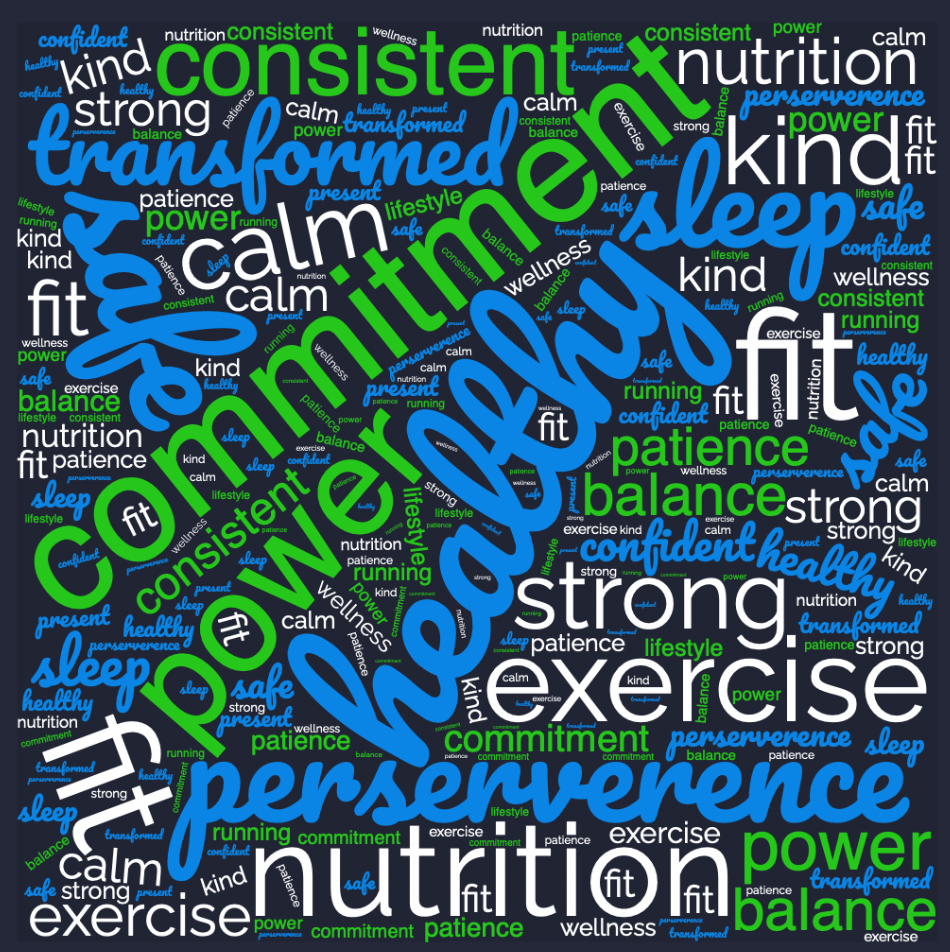How to set (and achieve) goals during the pandemic
Living through the pandemic has put many things beyond our control, but it’s still possible to achieve our goals. By setting goals that focus on how we behave rather than actual outcomes, we can regain control, even in uncertain times.
Goal setting is simply the act of selecting a target or objective we wish to achieve. We set goals for our careers, our futures, our children, our health and our fitness. Society encourages us to set goals for ourselves from when we are really young (e.g. asking pre-school children what they want to be when they grow up) and this continues throughout our lives. Goals can be small, such as growing a herb garden, or big, like starting your own business.
Health and fitness is a very common area of goal setting. We might want to lose weight, reduce our coffee intake, run a marathon, cut out sugar, sleep more and so on. But unfortunately, health and fitness goals are often waylaid by outside factors and we find ourselves having to start over and over again.
The influence of outside factors on our health and fitness goals has been magnified more than ever over the past two years. Fitness events were cancelled, gyms and group training programs were shut down, the pressures of homeschooling threw nutrition plans off track as wine and chocolate snuck back in, eagerly anticipated holidays were derailed, and job losses or business struggles impacted mental health. Because so many well-laid plans have been cancelled, postponed or modified during the pandemic, we may feel hesitant to set goals for this year.
And yet, goal setting is an extremely powerful tool that can keep us on track through the toughest of times. Therefore we need to change the way we understand goals and focus on ones that will positively impact our daily actions, but are not able to be influenced by outside forces beyond our control.
So as we head into the uncertainty of 2022, I challenge you to set goals that are completely controlled by you and you alone. Take some time to work out what you want to focus on this year (e.g. health, family, friendships, work) and create goals that are behaviour based rather than action based. Although these goals don’t tell you exactly what to do (e.g. go for a run), they will be the vision that guides your decision making each and every day.
Here’s how to make this happen:
Write down the area/s of your life that you would like to focus on this year e.g. family, health, work, friendships etc.
Now write down some behaviours that you know will have a positive impact on these areas of your life.
Finally, narrow down these behaviours into 3 words that you can focus on for the year ahead.
Let’s take your health as an example. Maybe you want to lose some weight and improve your nutrition. Rather than setting action-based goals based such as “eat less sugar”, or “have 5 alcohol free nights a week”, set behavioural goals that will feed into these desired actions. For example:
BEHAVIOURS: Mindful, consistent, nourishing
Now, when you are making a decision concerning your nutrition, check in to make sure the action feeds into these three words. Are you choosing to eat in a mindful way? Is this action allowing you to stay consistent with your nutrition rather than riding the rollercoaster? Will this action nourish your body and mind? Use your goal words to underpin every decision you make.
“Look at your goals, look at your performance. See if your behaviour matches your goals.”
This goal setting method can be used in all areas of your life. What behaviours do you aspire to as a parent, within your working life, or as a friend? Write your words down and stick them all over the house. Before you make any decision, check in with your words and make sure your actions align with your vision and goals.
By Angie Black
ANGIE BLACK
BLOG CATERGORIES:







